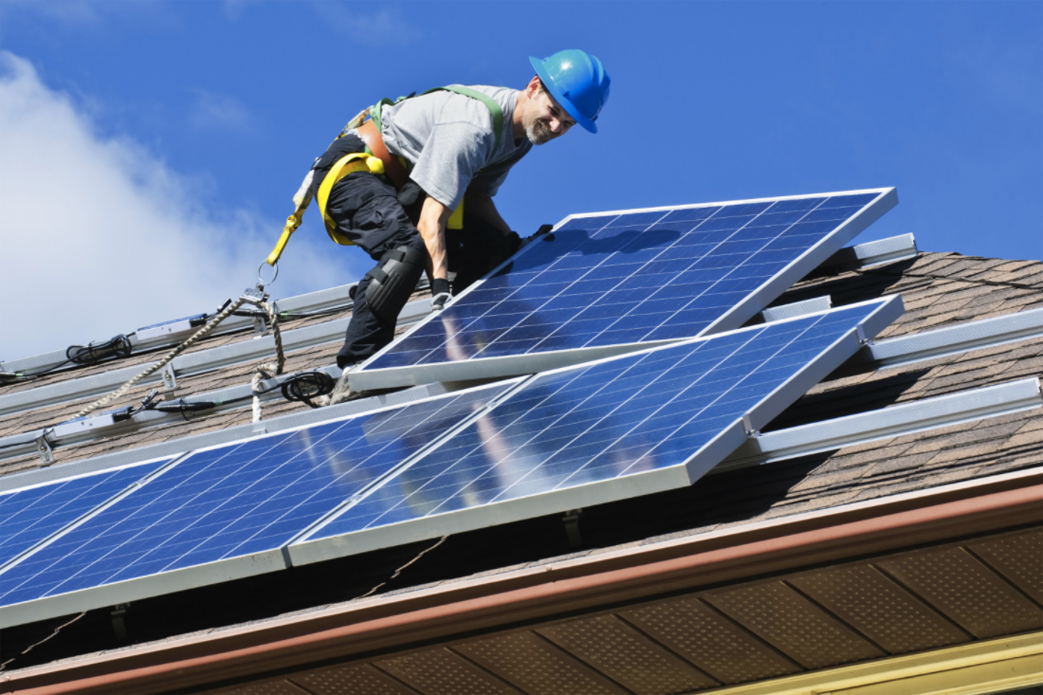From pv magazine France
An official document circulated on July 9 by French custom authorities clarified that French consumers are exempted from the internal tax on the final consumption of electricity (TICFE).
Exemption from this tax, amounting to € 22.5 per MWh, largely determines the profitability of photovoltaic installations in private homes, business and industrial sites in France. Richard Loyen, general delegate of French solar association Enerplan, believes that “when you produce solar electricity at € 70-80 MWh, the TICFE is decisive factor for the competitiveness of the project.”
Speaking with pv magazine, Loyen explained that the exemption was already included in the Customs Code, but it was not previously clear if the solar consumer was not also the project owner. The clarification now officially exempts the consumer from the TICFE, even when the solar installation is owned by a third party under a leasing or rental contract.
Sword of Damocles lifted
According to Enerplan, this clarity will enable the French solar sector to secure innovative business plans. “The clarification of the fiscal framework today allows professionals to propose new commercial offers in having certainty that their customers will not be liable for taxes on solar energy,” said Loyen. “Previously, when doing the due diligence for a self-consumption project, there was a concern when the facility belonged to a third party that the consumer would be indebted for the TICFE. Now this sword of Damocles has been lifted.”
Florian Ferjoux, environmental law specialist at Gossement Avocats, adds that operators in France can now safely offer a third-party investment contract in which they finance, install, and rent the solar installation. “It's going to break the brakes since the self-consumer will no longer have to provide capital for the facility itself,” he told pv magazine, confident that this state-approved third-party investment scheme could encourage projects that would not have been otherwise been realized.
However, Ferjoux also highlights the restrictions of the circular. To benefit from the exemption of the third-party investor, the solar installation must be marketed in the form of a leasing or through a rental contract.
Popular content
Currently any resale of electricity downstream of the meter or collective self-consumption remains subject to the TICFE, a measure that can only be lifted by a legislative amendment. Enerplan is currently supporting the work of the Ministry of Economy and Finance and the Ministry of the Ecological and Solidarity Transition surrounding these types of contracts, in the 2020 finance law which will be voted on at the end of the year.
European Repercussions
Enerplan's position aligns with that of the European Directive of December 2018, which requires that third-party investment be allowed in all Member States to develop individual self-consumption.
“Exemption from the French tax on self-consumption is great news for consumers,” says Naomi Chevillard, policy advisor at SolarPower Europe, the European Union of the photovoltaic industry. “It is in line with the Clean Energy Package, which states that no tax should apply to self-consumption and encourages new business models such as self-consumption, aggregation and third-party investment.”
Chevillard told pv magazine that similar legislative measures are underway in Spain, Italy, Sweden and Austria, and hopes that other countries will eventually follow the French example.
This content is protected by copyright and may not be reused. If you want to cooperate with us and would like to reuse some of our content, please contact: editors@pv-magazine.com.


1 comment
By submitting this form you agree to pv magazine using your data for the purposes of publishing your comment.
Your personal data will only be disclosed or otherwise transmitted to third parties for the purposes of spam filtering or if this is necessary for technical maintenance of the website. Any other transfer to third parties will not take place unless this is justified on the basis of applicable data protection regulations or if pv magazine is legally obliged to do so.
You may revoke this consent at any time with effect for the future, in which case your personal data will be deleted immediately. Otherwise, your data will be deleted if pv magazine has processed your request or the purpose of data storage is fulfilled.
Further information on data privacy can be found in our Data Protection Policy.